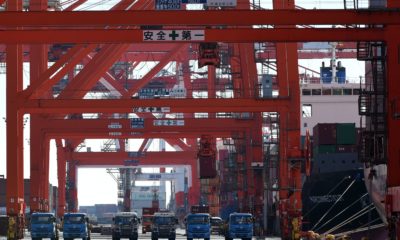Implemented on January 1, 2021, the African Continental Free Trade Agreement (AfCFTA) is considered the foundation for enhanced cross-continental trade in Africa. Signed by 54 countries, the agreement comprises the reduction of tariff and non-tariff barriers, the simplification of custom procedures, and the elimination of red tape with the aim of creating a single market for goods, persons and services. Representing the largest economy in Africa, with over $500 billion in Gross Domestic Profit (GDP) and a population of 200 million people, Nigeria is poised to significantly gain from both investment and trade opportunities created by the AfCTA.
According to the African Development Bank, the Nigerian economy is projected to grow by 2.9% in 2021. With industries such as energy, manufacturing, agriculture and mining contributing significantly to GDP, all of which are expected to grow exponentially with the increase in technology and investment, the country is well on its way to become a multi-sector giant. With the AfCFTA, this objective may yet be achieved, with new and improved trade opportunities creating enhanced regional supply networks, domestic job opportunities, and capacity building.
Regional Supply Networks
One of the primary benefits initiated by the AfCFTA concerns regional supply chains of which the opportunities are multifold. Firstly, local Nigerian businesses have new opportunities regarding regional exports, with newly created supply chains made both efficient and sustainable through the agreement. Progressive policies and simplified customs procedures make regional trade more enticing for domestic producers, and additionally increase foreign currency in the country. Secondly, established regional networks offer lucrative investment opportunities for both local and international financiers. Requiring capital injections in the distribution and logistics supply chain, as well as transportation infrastructure, the AfCFTA has created new business opportunities for multiple sectors while increasing direct investment in the economy. Finally, supply chains enable regional demand to be met, with Nigerian products and services utilized not only domestically but in neighboring countries and across the continent. Nigeria is already utilizing regional trade opportunities, contributing approximately 76% of total trading volumes in the Economic Community of West African States region. The AfCFTA will only further enhance this trend, creating new opportunities and spurring economic and trade growth.
Employment Creation and Capacity Building
The AfCFTA has created significant opportunities for Nigeria to drive job creation and capacity building. With the creation of a single liberalized market for trade in services for the continent, the AfCFTA enables both the trade in products and services as well as human capital. Accordingly, Nigeria, with a high number of multi-sector professionals compared to other regional markets, will be able to expand knowledge and expertise cross-borders. Nigerian workers will not only be able to take advantage of job opportunities in regional countries, but those countries will be able to meet demand for skilled workers, with knowledge sharing and skills transfer increased. The result is, therefore, mutually beneficial, with the agreement serving as a foundation for continental human capital development.
Meanwhile, with the Nigerian Oil and Gas Industry Content Development Act (2010) – a comprehensive policy to promote local participation, technology transfer and sustainable macro-economic growth – already ensuring indigenous companies are granted opportunities to have greater involvement in the oil and gas industry, the AfCFTA will only enhance this trend, as more opportunities are created not just nationally but regionally. As more International Oil Companies come into African markets, and governments lobby for increased capacity building and skills transfer, regional countries, not just resource rich nations, stand to benefit.
“Representing the largest economy and one of the most formidable oil and gas industries in Africa, Nigeria stands to significantly benefit from the opportunities created by the AfCFTA. Specifically, the agreement will significantly enhance local content, further ensuring that value created by the extraction industry goes beyond resource revenues, with job creation, capacity building, and skills transfer expanding across the region. Nigeria has become a leader in local content, with progressive policies and supportive legislature ensuring that the local population not only benefits from energy sector developments, but are a key enabler of that growth. The AfCFTA will see Nigeria into a new era of economic progress, with other countries soon to follow,” stated Verner Ayukegba, Senior Vice President of the African Energy Chamber (AEC) and Director of Operations at DMWA Resources.
AEW 2021, in partnership with South Africa’s Department of Mineral Resources and Energy DMRE, is the AEC’s annual conference, exhibition and networking event. AEW 2021 unites African energy stakeholders with investors and international partners to drive industry growth and development and promote Africa as the destination for energy investments.


 Forex2 weeks ago
Forex2 weeks ago


 Naira2 weeks ago
Naira2 weeks ago
 Billionaire Watch1 week ago
Billionaire Watch1 week ago




 Naira2 weeks ago
Naira2 weeks ago




 Naira1 week ago
Naira1 week ago




 Naira4 weeks ago
Naira4 weeks ago
 Nigerian Exchange Limited4 weeks ago
Nigerian Exchange Limited4 weeks ago


 Naira3 days ago
Naira3 days ago

















